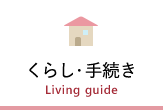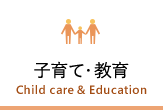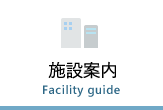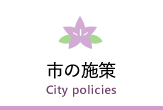さまざまな文化のカタチについて
更新日:2025年5月27日
広報かまがや5月1日号
日本に着いた最初の日から、私は外見、スタイル、行動が違っていると感じました。ヨーロッパ大陸では、さまざまな文化や国籍の人々が、共通の歴史と伝統によって結びつきながら、隣り合って暮らしています。
スラブ人に関して言えば、私たちの言語も似ています。ウクライナ語とロシア語は共通の特徴を持っているだけでなく、ウクライナ人とベラルーシ人は、ウクライナ人とロシア人よりもお互いをよく理解しています。ウクライナ語は、ポーランド語、セルビア語、チェコ語と同様、スラブ語族に属しているため、類似点があります。
他に経験がなかったので、礼儀作法や言葉遣いに慣れれば、時間とともに私たちの間の壁は小さくなるだろうと思っていました。しかし、そうではありませんでした。過去6か月間日本語を勉強して、私たちの考え方が根本的に違うことに気づきました。
一度、カフェに入ったとき、誤って椅子を押してしまいました。ヨーロッパなら、ただ謝って、あまり気にしなかったでしょう。しかし、ここでは、お客さんが一瞬固まったのに気づき、カフェの店員はすぐに微笑んで、安心させるようなことを言いました。このことから、私は日本社会における調和と衝突を避けることの重要性について考えるようになりました。
服装について、ウクライナやヨーロッパでは、服を着るときは自分の心の状態と気分だけを基準にしますが、日本では、仕事でプロジェクトや問題について話し合うときは、外見(見た目)を考慮して肩を隠したほうがいいと感じたり、他の人がどう思うかを考えたりします。私はヨーロッパでやってきたように、まず自分の意見を述べてすぐに行動に移したいと思いました。しかし、同僚たちはまず、全員に合う解決策を見つけるために、全員で話し合いました。この方法は一見遅いようにも見えましたが、効率的に作業するのにとても役立っていました。
クロード・レヴィ=ストロースの本で、デカルトの「我思う、故に我あり」は日本語に正確に翻訳できないという考えが思い浮かびました。ヨーロッパの哲学は主体から始まる遠心的な哲学であるのに対し、日本の哲学は個人を関係性のシステムに統合する求心的な哲学であると説明しています。これらの言葉は私に多くのことを教えてくれました。自己理解への異なるアプローチが、世界に対する異なる認識につながる可能性があることに目を開かせてくれました。西洋の慣例では、人は自分自身を現実の中心、強さと論理の源泉とみなすことが多いです。この見方は、私たち一人ひとりが自分の世界の独立した創造者であると仮定しています。
一方、日本の哲学は、個人と周囲の環境との調和と相互関係を強調しています。個人を、家族、社会、自然との幅広い関係のネットワークに巧みに統合します。人間が孤立した「宇宙の中心」ではなく、むしろ宇宙の一部であるというこの概念は、私にとって新しいものです。
それぞれの文化には独自の特徴があります。私たち一人ひとりが自分自身を現実の中心とみなす私たちのアプローチは、あまりにも乱暴で、無秩序で、騒々しいように思われるかもしれません。調和と相互尊重を重んじる人々である皆さんにとって、これは普通ではないと思われるかもしれません。ですから、私たち(ヨーロッパ人、アメリカ人)を許してください。私たちは、各個人が大きな責任を負っていると信じているため、時にはパニックに陥り、愚かな行動をしてしまうのです。これは、私の観察と、哲学者や人類学者から読んだものだけに基づいた、大まかな概念です。私の大胆さをお許しください。
私は、ある世界観が他の世界観よりも優れているとは思いません。逆に、相互の交流を通じて私たちは豊かになるのです。
私の家族とウクライナを支えてくれた鎌ケ谷と日本の人々に、私は感謝し続けます。ありがとうございます。
英語版
From my first day in your wonderful country, I felt different - different in appearance, style, and behavior. On the European continent, people of various cultures and nationalities live side by side, connected by shared history and traditions.
When it comes to Slavic people, even our languages are similar. Not only do Ukrainian and Russian share common features, but Ukrainians and Belarusians can often understand each other better than Ukrainians and Russians. Ukrainian also has similarities with Polish, Serbian, and Czech, as they all belong to the Slavic language group.
Having no other experience, I thought that if I familiarized myself with etiquette and language, the wall between us would become smaller over time. But that wasn’t the case.
Over the past six months of studying Japanese, I have realized that our ways of thinking are fundamentally different.
Once, when I entered a cafe, I accidentally pushed a chair. In Europe, I would have simply apologized and not given it much importance. But here I noticed that the customers froze for a moment, and the cafe employee immediately smiled and said something reassuring. This made me think about the importance of harmony and avoiding conflicts in Japanese society.
Regarding clothing, in Ukraine or Europe when I dress I am guided only by my inner state and mood. in Japan I feel at the level of the body that it is better for me to cover my shoulders or I think about how others will look at it at work when we discuss projects or issues. My first desire was to express my own opinion and immediately start acting, as we are used to in Europe. But my colleagues first discussed everything collectively to find a solution that suits everyone. Their strategy seemed slow, but it really contributed to the coordinated work.
In Claude Levi-Strauss’s book, I came across the idea that Descartes’ “I think, therefore I am” cannot be accurately translated into Japanese. He explains that European philosophy is centrifugal, originating from the subject, while Japanese philosophy is centripetal, integrating the individual into a system of relationships.
These words explained a lot to me. They opened my eyes to how different approaches to understanding the self can lead to different perceptions of the world.
In Western tradition, a person often sees themselves as the center of their reality, a source of strength and logic. This perspective assumes that each of us is an independent creator of our own world.
Japanese philosophy, on the other hand, emphasizes harmony and interconnectedness between individuals and their surroundings. You skillfully integrate an individual into a broad network of relationships - with family, society, and nature. This concept, where a person is not an isolated “center of the universe” but rather a part of it, is new to me.
Each culture has its own unique traits. Our approach, where each of us sees ourselves as the center of our reality, may seem too rough, chaotic, or loud. I understand that for you, as a people who value harmony and mutual respect, this may seem unusual.
So please forgive us (Europeans, Americans) - we believe that each individual has great responsibility, so sometimes we panic and act foolishly. This is a broad generalization, based only on my observations and what I’ve read from philosophers and anthropologists. Please excuse my boldness.
I do not believe that one worldview is better than another - on the contrary, our enrichment comes through mutual exchange.
I will never stop thanking the people of Kamagaya and Japan for supporting my family and Ukraine. Thank you.
問い合わせ
総務企画部 企画財政課 企画政策室
〒273-0195 千葉県鎌ケ谷市新鎌ケ谷二丁目6番1号 市庁舎3階
電話:047-445-1073
ファクス:047-445-1400







